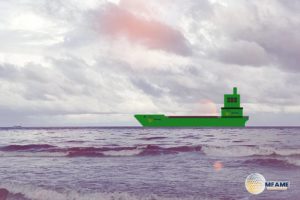- Tanker owners prioritize clear decarbonization pathways, workforce training, and innovative solutions to meet 2025 challenges.
- Rising shipbuilding costs and regulatory complexities demand collaboration and streamlined guidelines across the industry.
- Enhanced owner-charterer cooperation and technological adoption are vital for ensuring sustainability and operational efficiency.
The chemical and product tanker industry faces a challenging road ahead in 2025, with decarbonization goals, regulatory demands, and rising costs reshaping its priorities. Tanker owners and operators are advocating for innovative, collaborative, and proactive strategies to navigate the evolving landscape. Addressing these shared concerns will determine the industry’s ability to remain competitive and sustainable, reports Riviera.
Clear Decarbonization Pathways
Tanker owners emphasize the need for scalable, operationally efficient solutions to achieve decarbonization.
While alternative fuels like LNG and methanol are promising, concerns over ethical challenges, infrastructure readiness, and energy requirements persist. Shared responsibility between owners and charterers is seen as crucial for driving this transition.
Addressing Rising Shipbuilding Costs
The rising cost of new builds and limited shipyard capacity are significant challenges. Escalating prices and tight availability at Asian shipyards are driving calls for regional diversification in Europe and the Middle East.
Collaborative supply chain models and innovative contracts may help mitigate these financial pressures.
Simplifying Regulatory Compliance
Navigating regional and global emissions standards, including the EU ETS and IMO GHG measures, is a top concern. Smaller fleet operators feel particularly unprepared for mid-term compliance measures.
The industry is calling for clear, harmonized regulations to reduce complexity and promote alignment across regions.
Driving Technological Advancements
Technological innovation is vital for boosting efficiency and cutting costs. Owners highlight the potential of data analytics and AI in fleet optimization and emissions tracking but stress the need for clearer use cases and wider adoption.
Sustainable tank-cleaning technologies also require support from charterers to encourage implementation.
Workforce Training for Alternative Fuels
As LNG, methanol, and other alternative fuels gain traction, workforce training becomes critical. Owners advocate integrating alternative fuel training into global standards like the STCW Convention to ensure consistency.
Setting industrywide targets for trained seafarers by 2030 is seen as a step toward aligning workforce capabilities with decarbonization goals.
Enhancing Owner-Charterer Collaboration
Strained relationships between owners and charterers are a concern. Owners seek shared costs for decarbonization and flexible operational standards, particularly for sustainable tank-cleaning practices.
Unified guidelines and shared incentives are viewed as essential to fostering stronger partnerships.
Did you subscribe to our daily Newsletter?
It’s Free Click here to Subscribe!
Source: Riviera



















